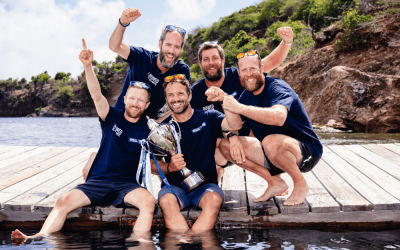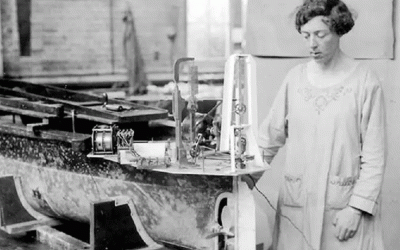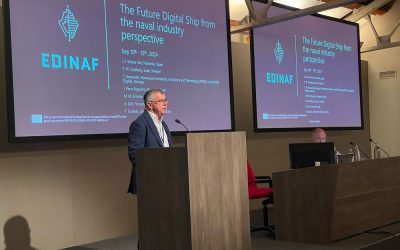
Four models of the medium-speed, four-stroke design, spanning a maximum rating band from 1,000kW to about 2,700kW, have been released by the BeHydro joint venture of Antwerp-based deep-sea operator Compagnie Maritime Belge (CMB) and Ghent manufacturer ABC Engines.
The introductory DF offering, designated the DZD series, encompasses six- and eight-cylinder in-line models, and 12- and 16-cylinder vee-form types, each delivering some 166kW per cylinder at a crankshaft speed of 1,000rpm. A companion range of 100% hydrogen, spark-ignited (SI) versions is set to follow, promising wholesale elimination of CO2.
ABC’s DZC proven medium-speed family has provided the technical platform for the initial BeHydro hydrogen DF engines and the nascent hydrogen monofuel (spark-ignited) engines.
For the DF types, the CO2 emission abatement achieved by burning hydrogen will be complemented by NOx and particulate matter (PM) minimisation in diesel mode through the specification of, respectively, a catalytic converter and particle filter, using proprietary ABC aftertreatment systems. While selective catalytic reduction (SCR) ensures IMO Tier III compliance in all modes, the inclusion of a diesel particle filter (DPF) also brings the engines within the ambit of the EU Stage V requirements.
Emissions compliance
The SI models will still need SCR and DPF for EU Stage V accreditation, but will meet Tier III criteria without exhaust aftertreatment, and offer the further benefit of compliance with Germany’s TA Luft comprehensive air pollution standards and the Flemish VLAREM regulation.
Although the immediate priority is the successful launch and operational performance of the hydrogen-capable DF DZD generation, the BeHydro partners are already looking to the next step in the decarbonisation journey by extending the new engine marque to a power level of 10,000kW. This would be equivalent to the highest output obtainable in the current ABC portfolio. CMB advised TNA that: “Once there are applications which can supply 700kg per hour to each engine, we are ready to build the 10MW (hydrogen) version of the DL series”.
The DL platform developed by ABC was announced in September 2012, in the shape of the DL36 in-line engine. First released in six- and eight-cylinder configurations, the follow-on launch of DV36 vee-type 12- and 16-cylinder versions signified a major hike in unit powers obtainable from the Belgian manufacturer, taking its scope to unit applications of 10,400kW.
The company added LNG dual-fuel models to its production programme some years ago and subsequently investigated new dual-fuel solutions using methanol and hydrogen, which included recourse to a single-cylinder test engine at WTZ Rosslau in Germany. Methanol and hydrogen have specific characteristics and differ from methane in many respects, resulting in varying engine thermodynamics, injection strategies and safety concepts. Burning pure hydrogen produces no CO2 in the exhaust.
In the hydrogen DF engine, a diesel pilot is used as the ignition source. To address the issue of potential pre-ignition with hydrogen fuel, ABC’s strategy included measures to reduce the temperature of the hydrogen-air mixture below the auto ignition limit at the point of pilot diesel injection, preventing hot spots on pistons and cylinder tops, and boosting the air flow so as to dilute the hydrogen/air mixture, which also cuts NOx emissions.
For the full article please see the March 2021 edition of The Naval Architect.





